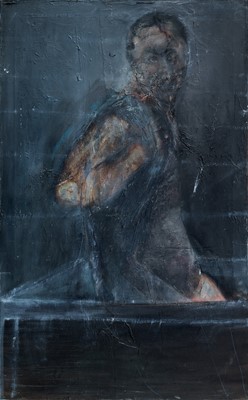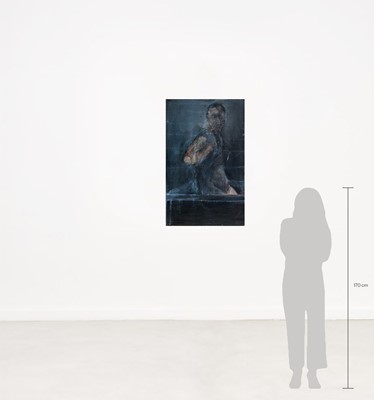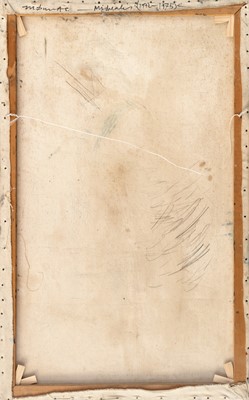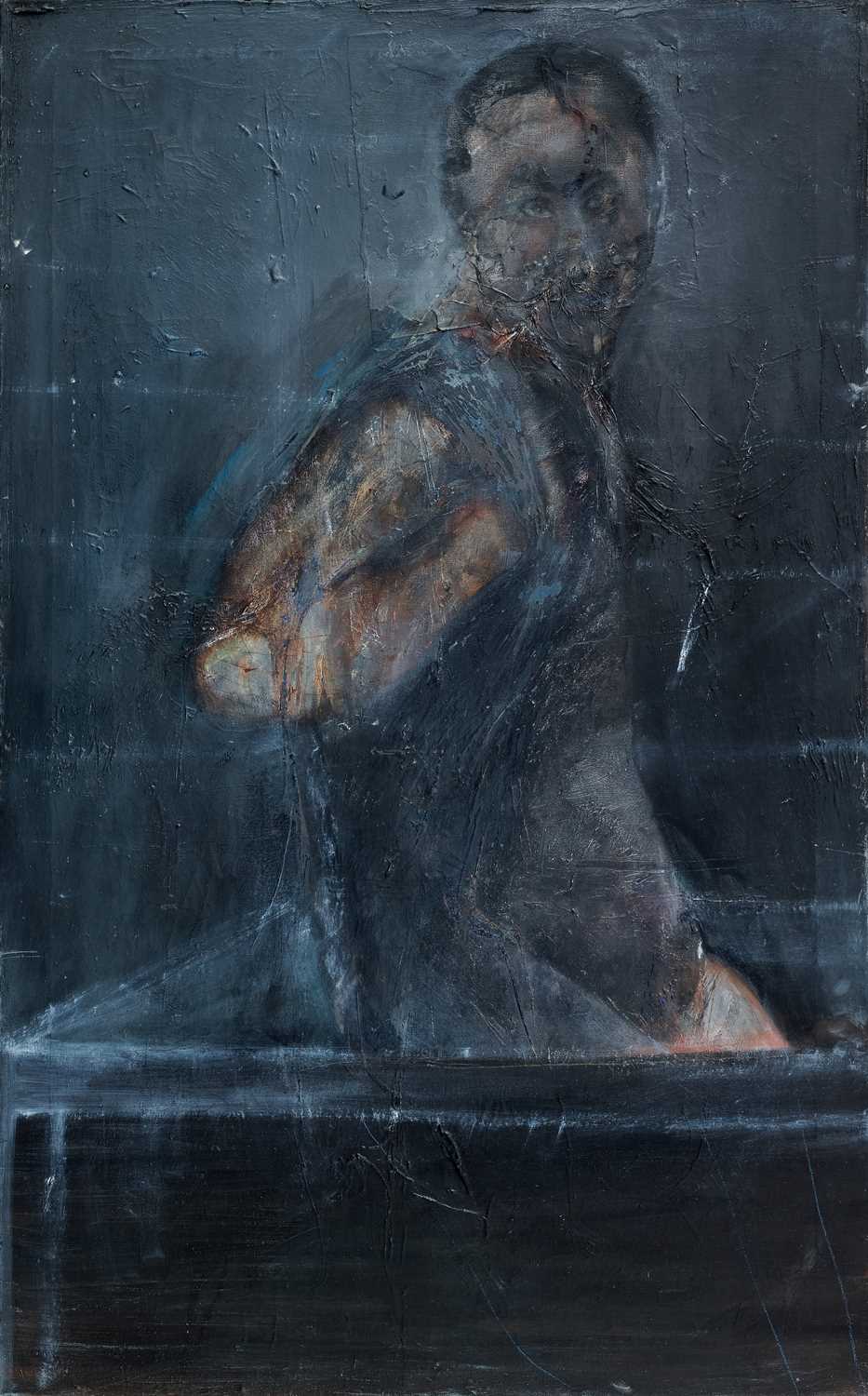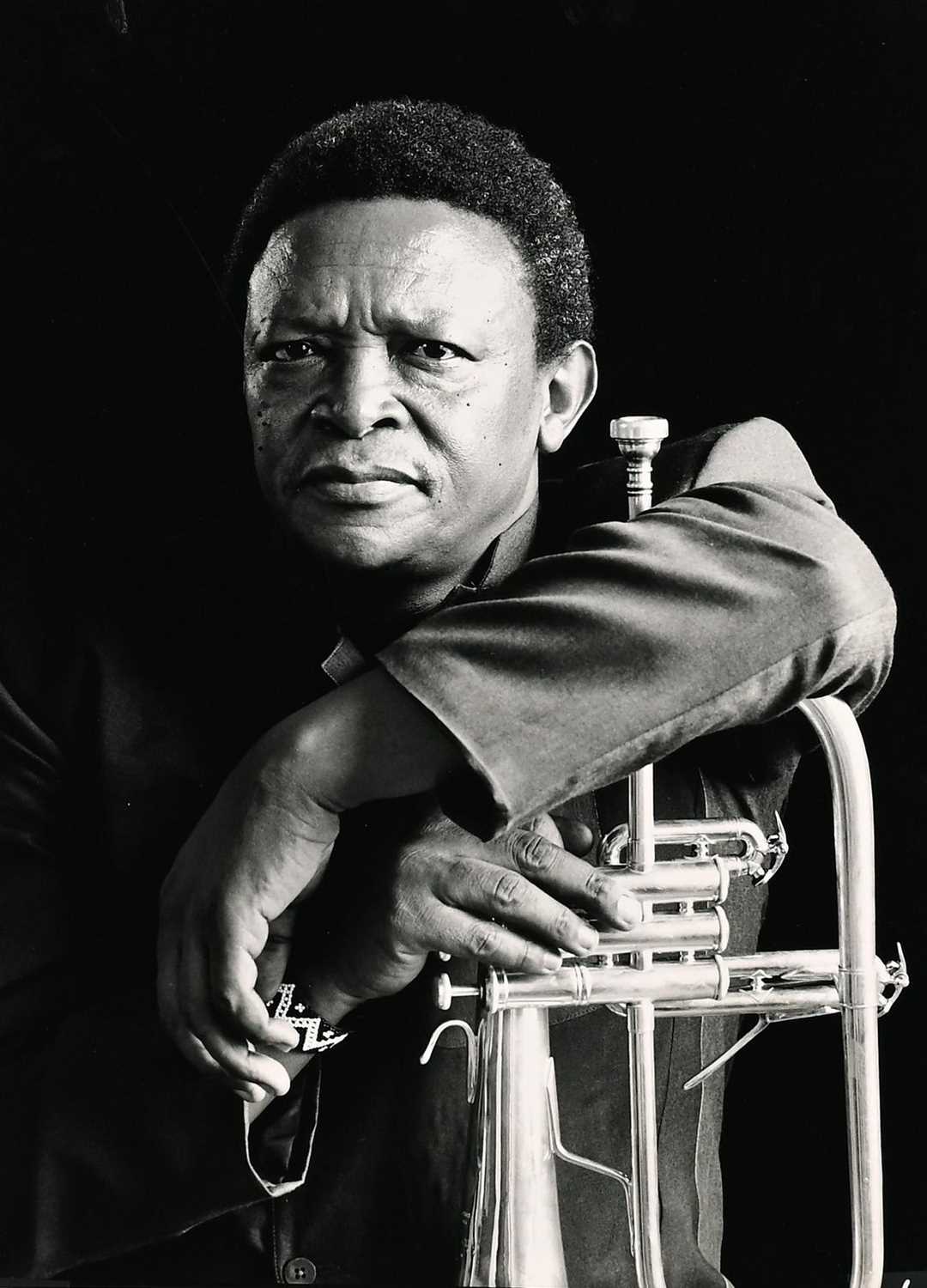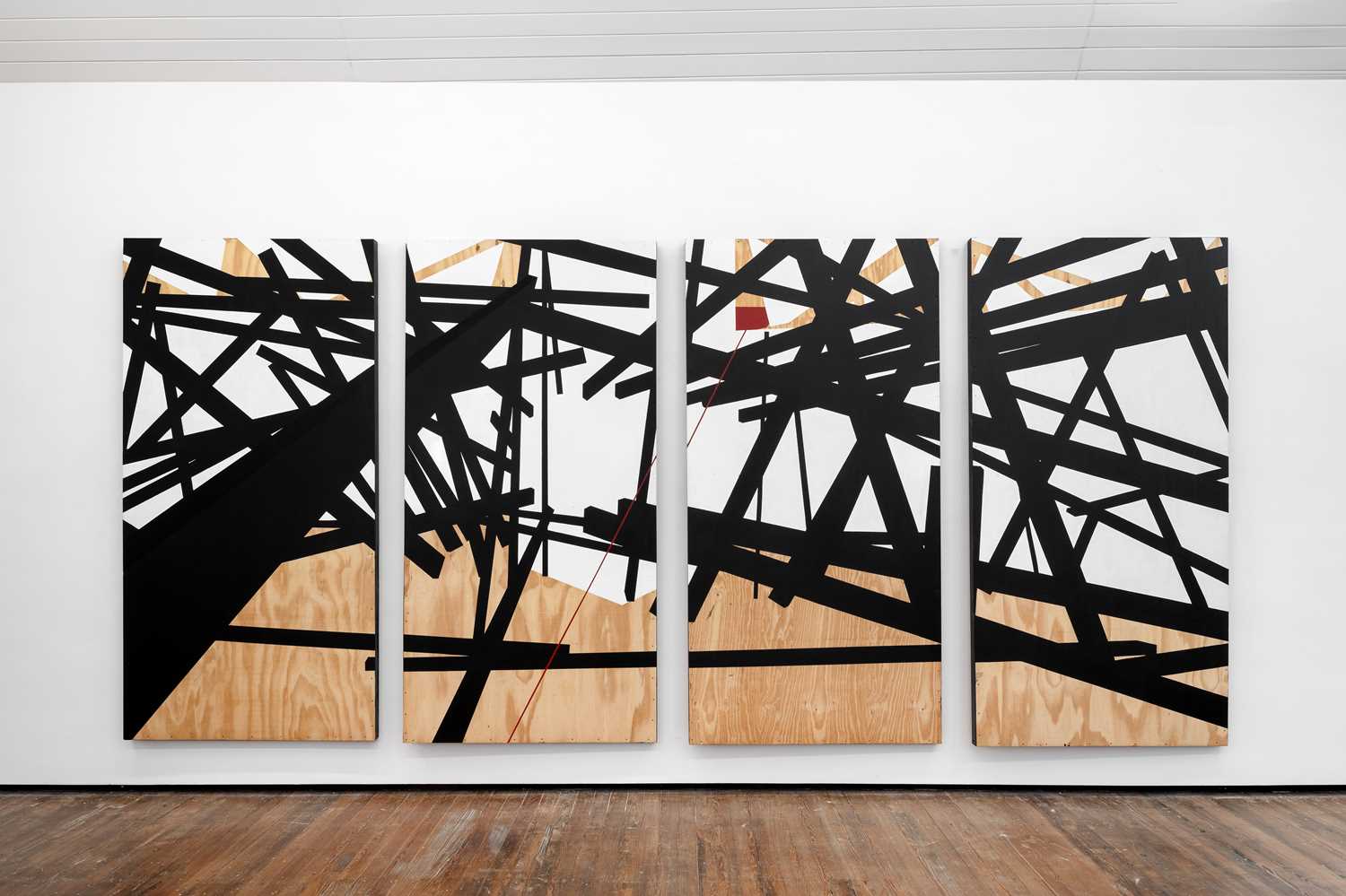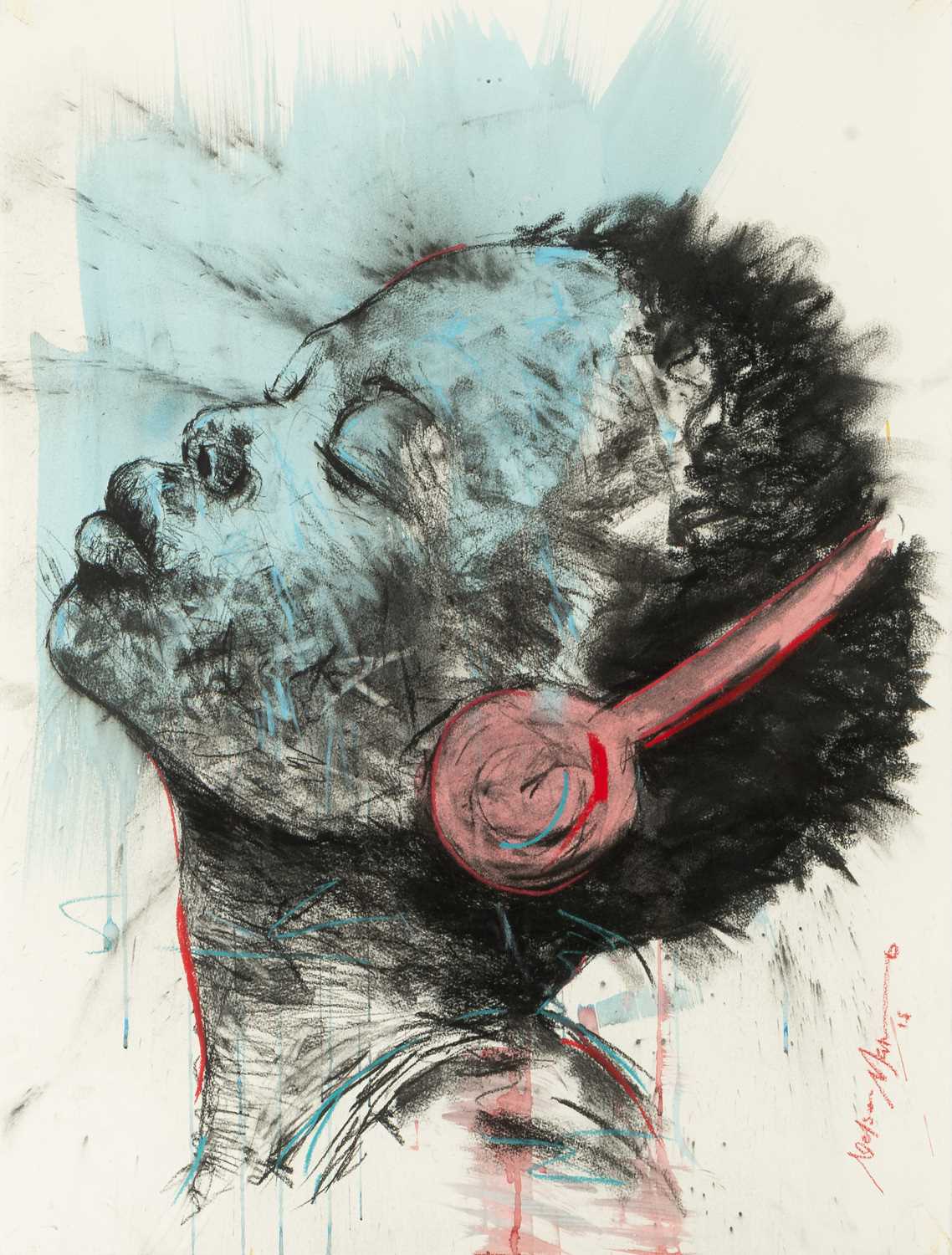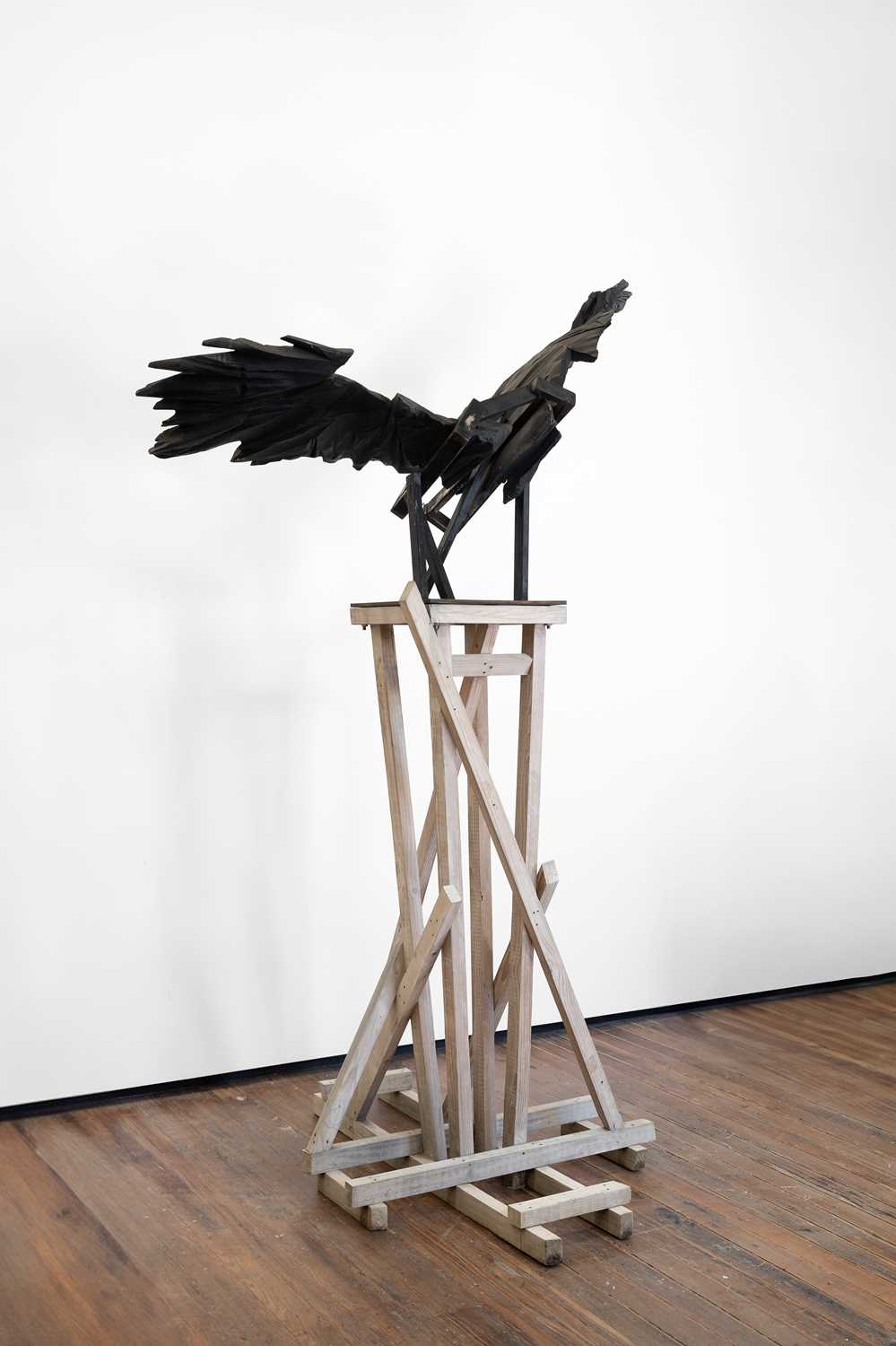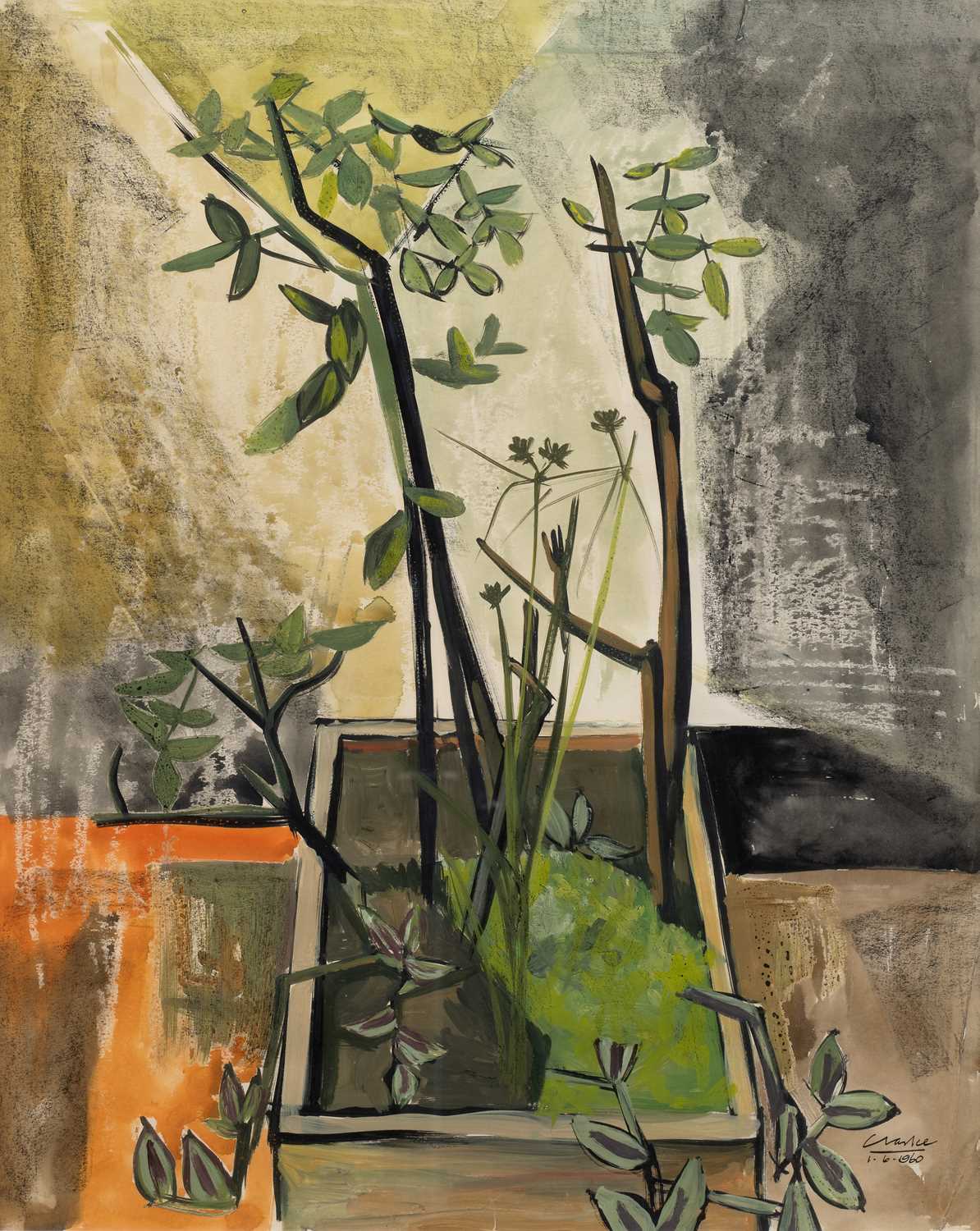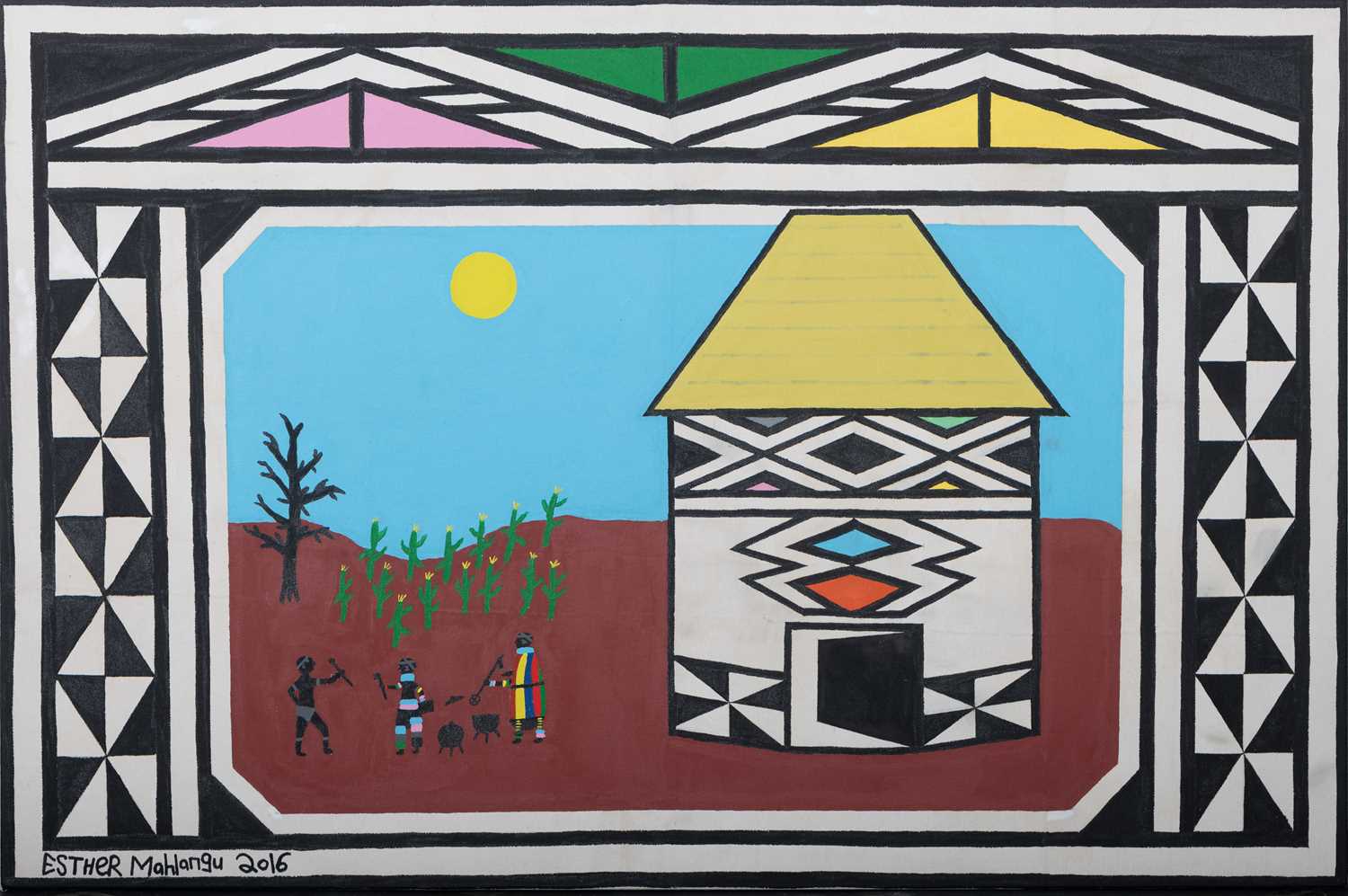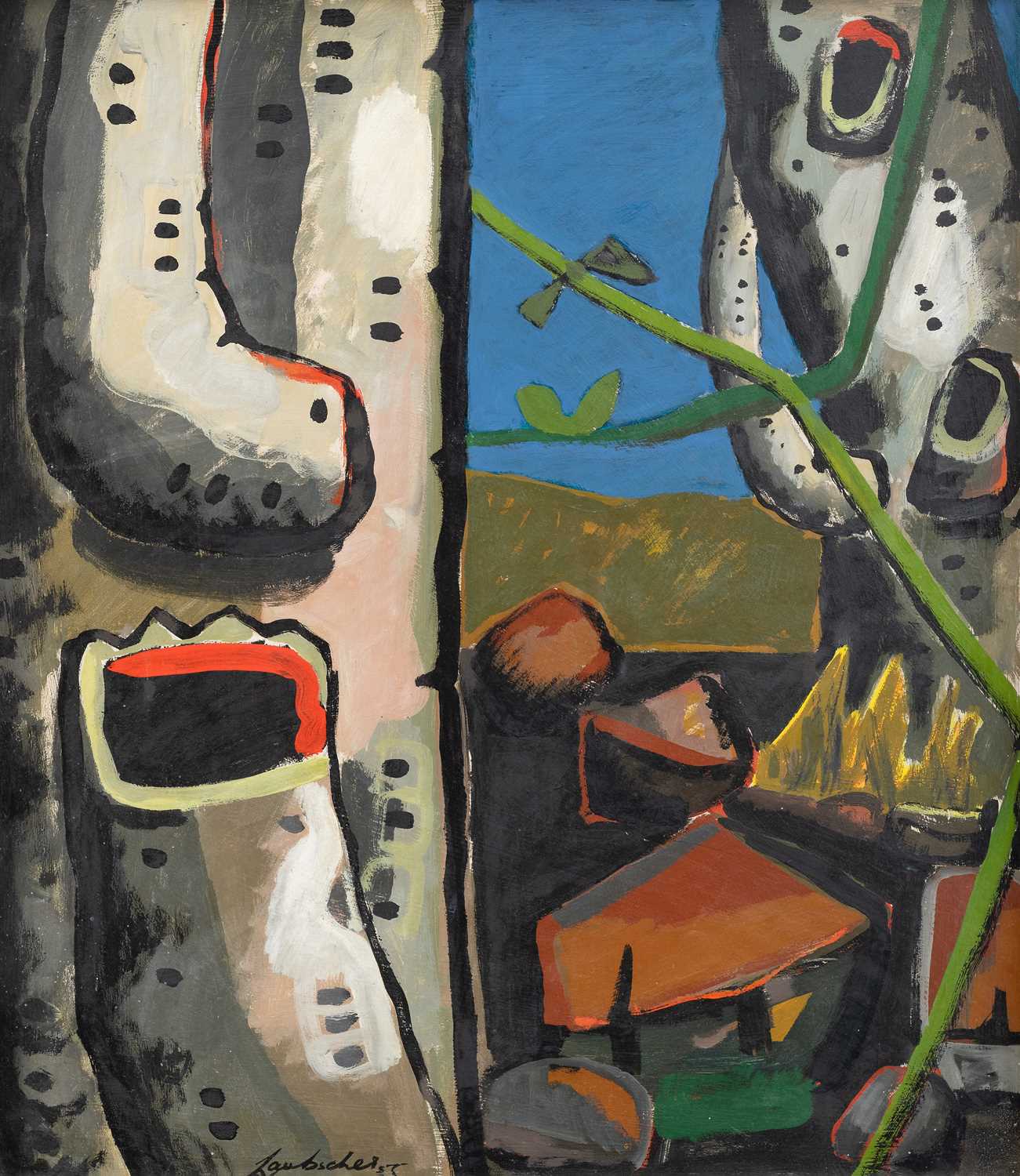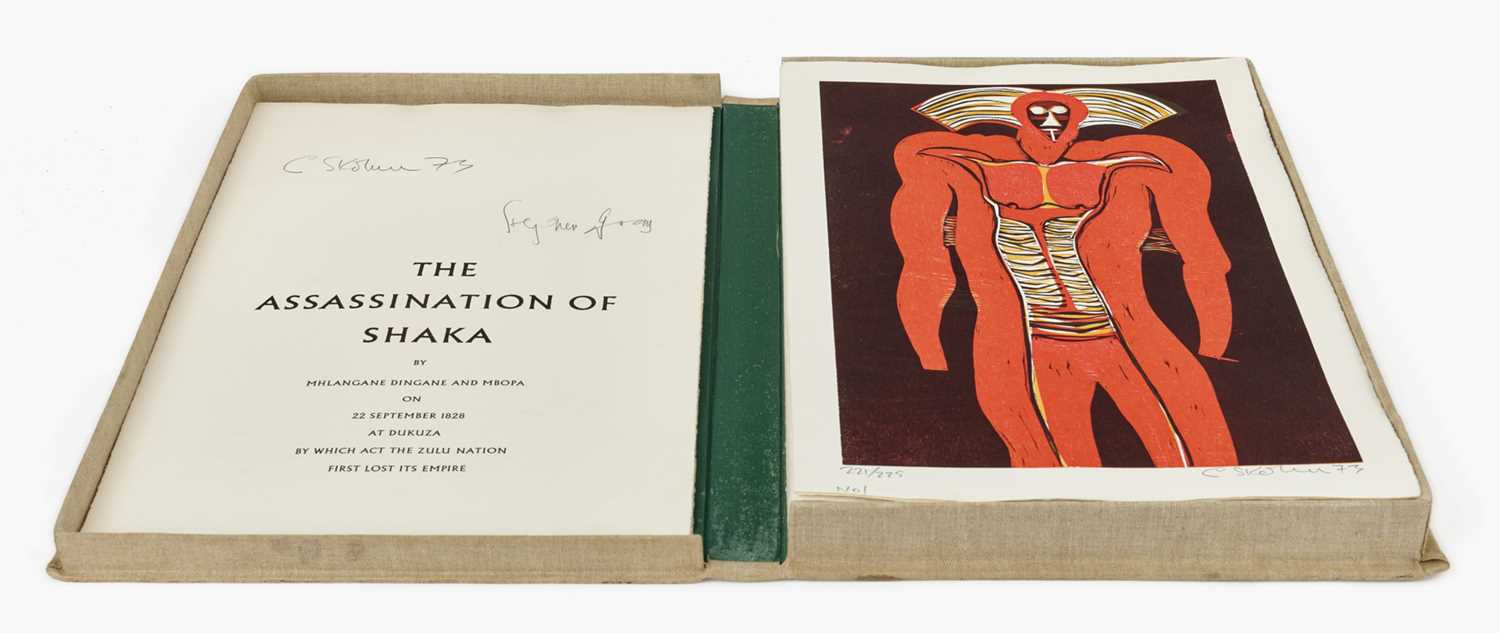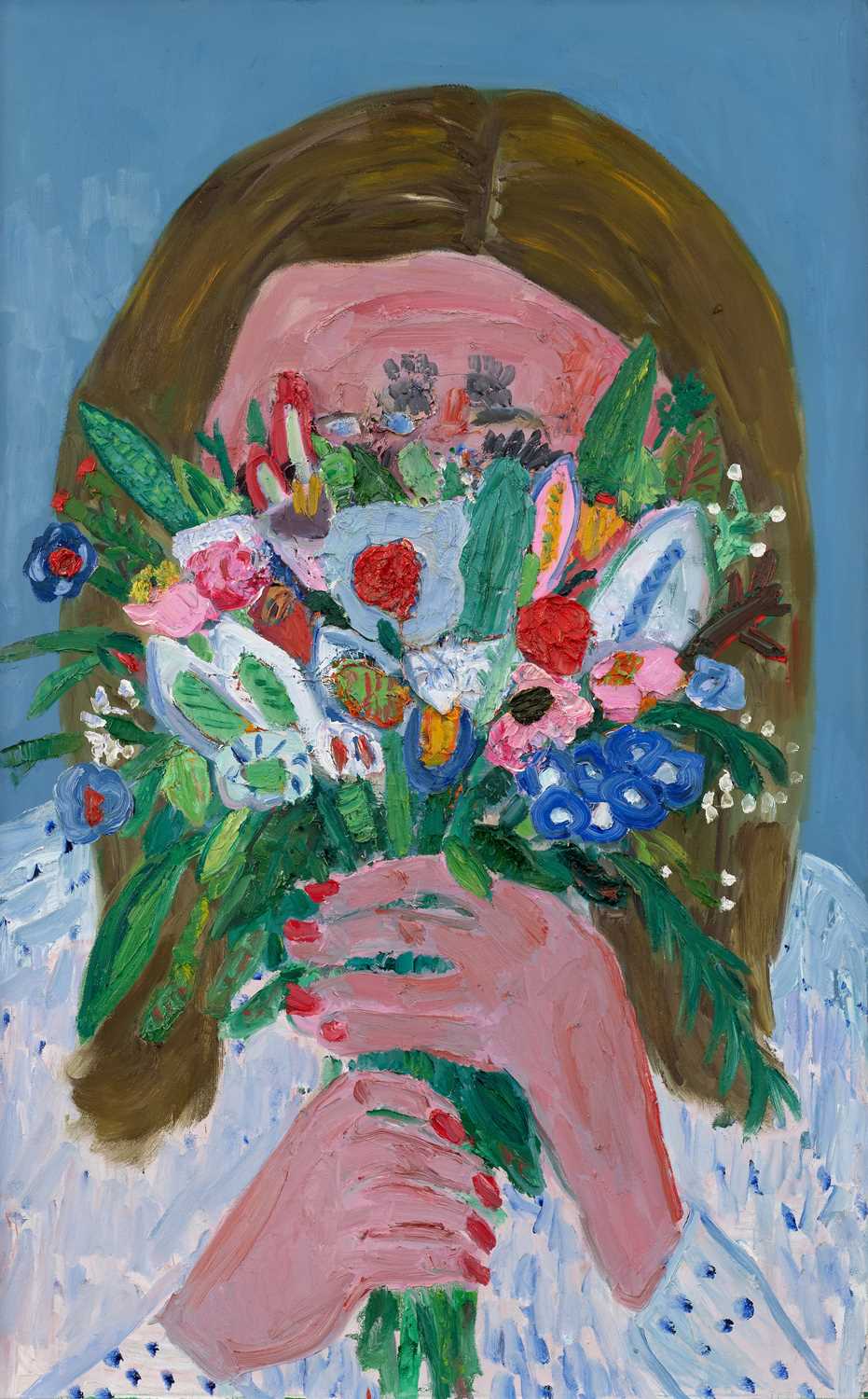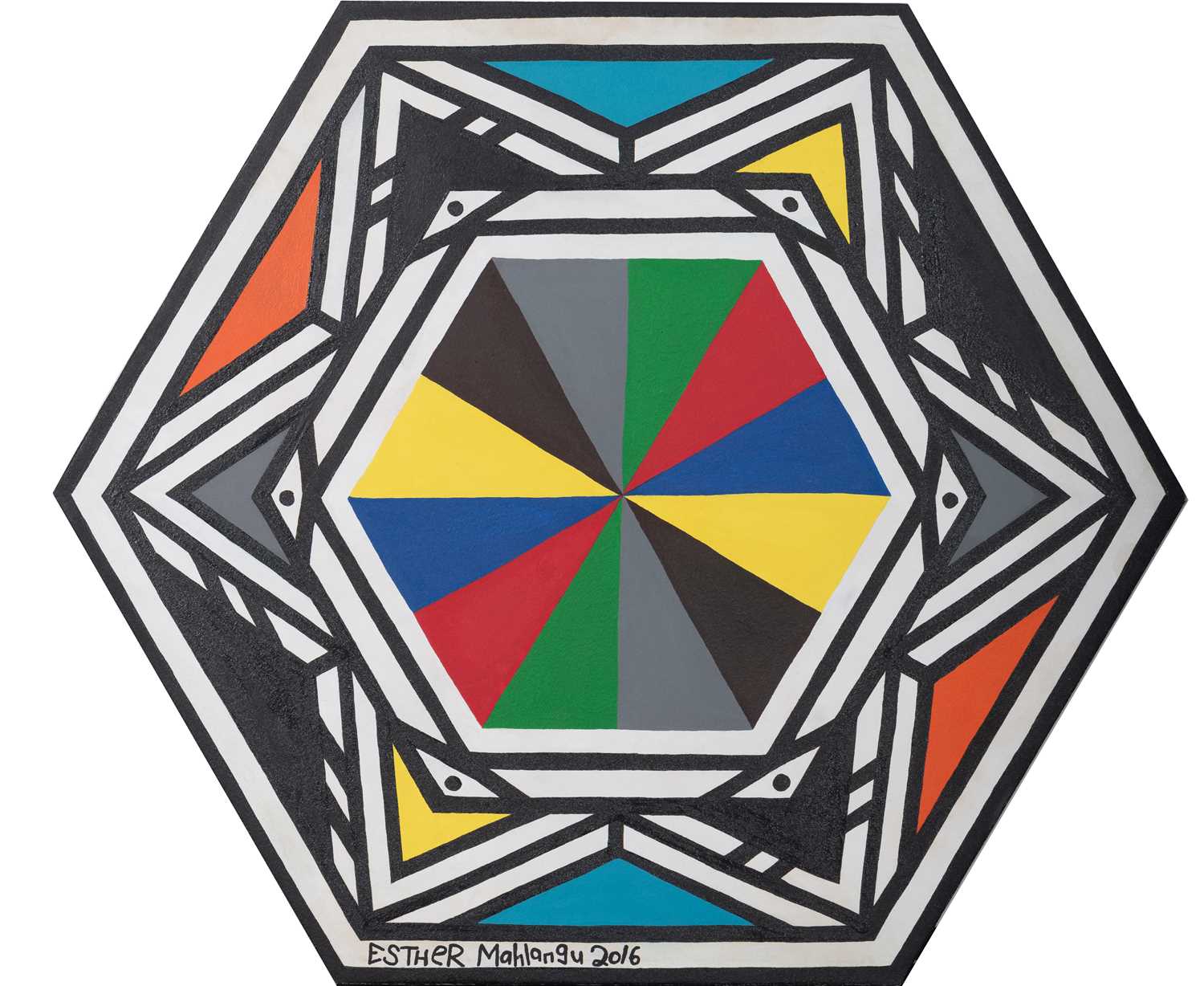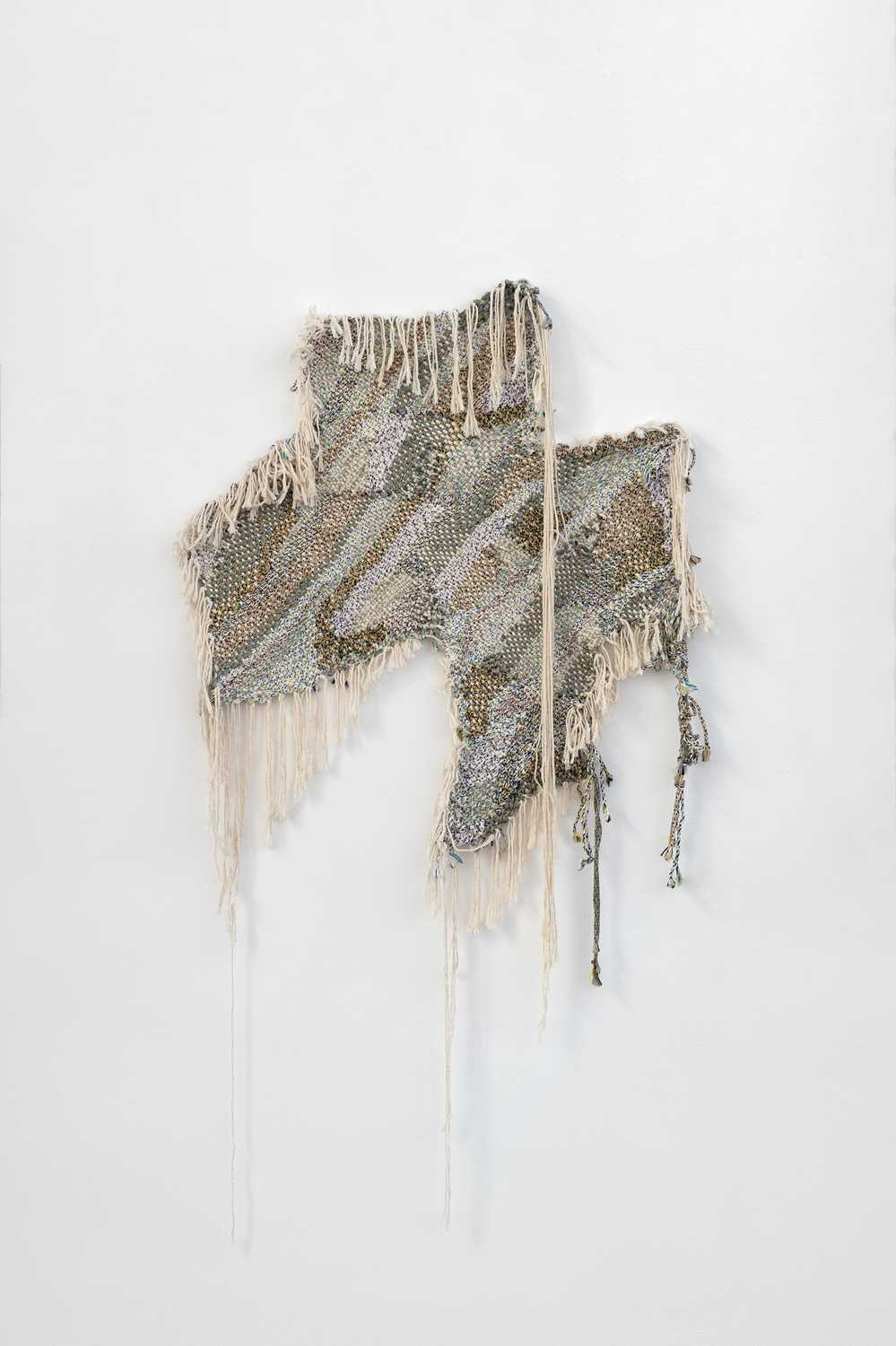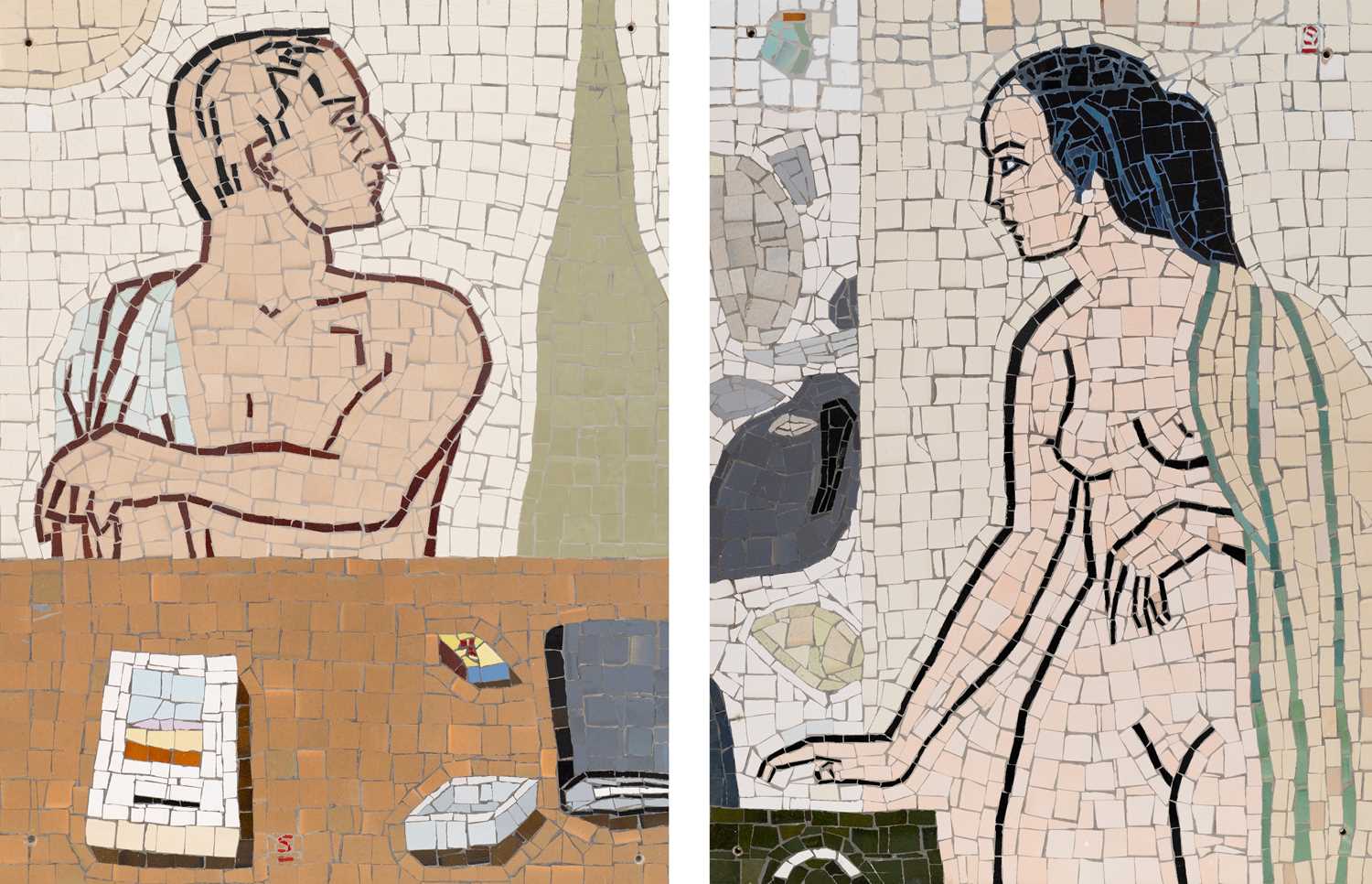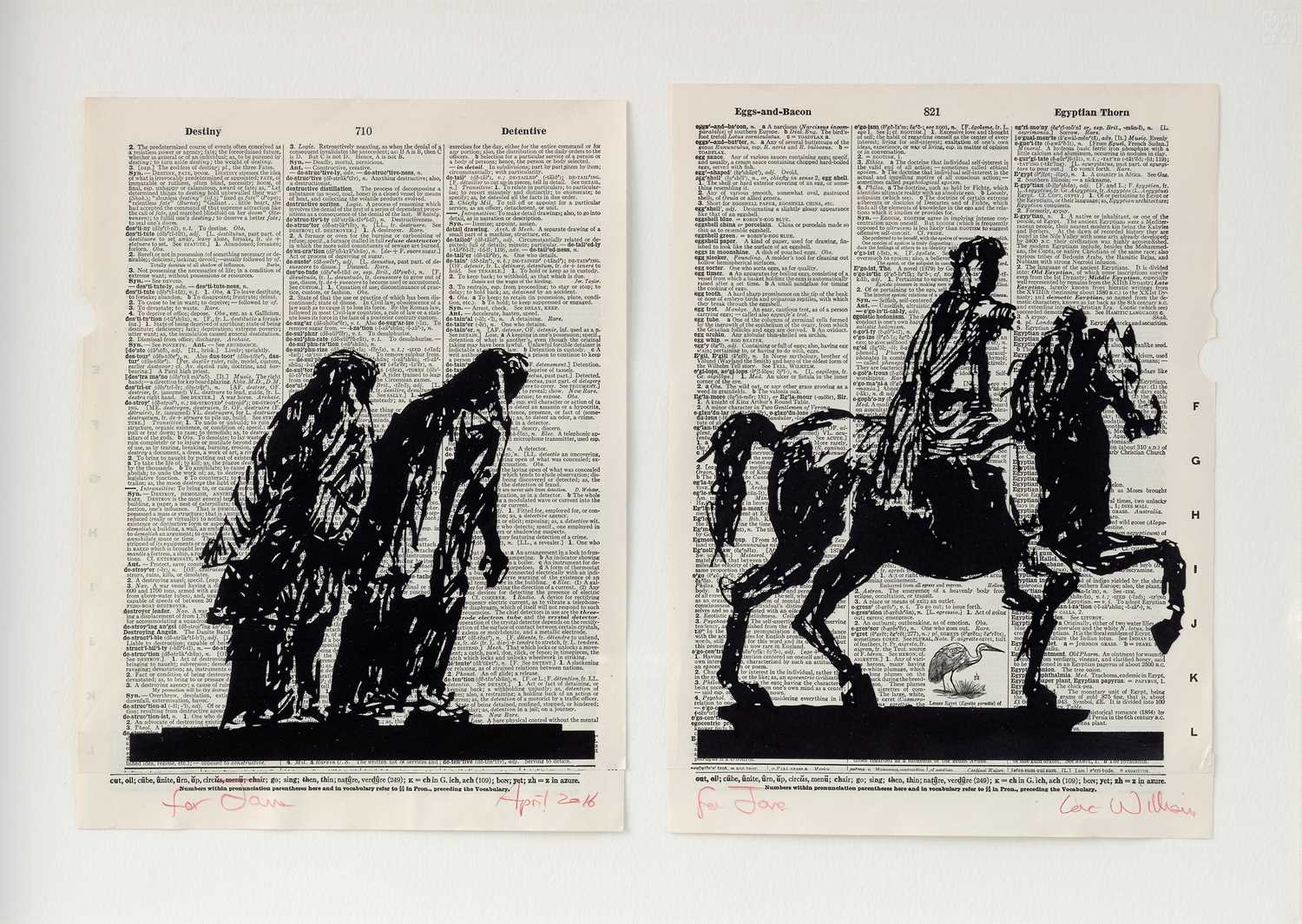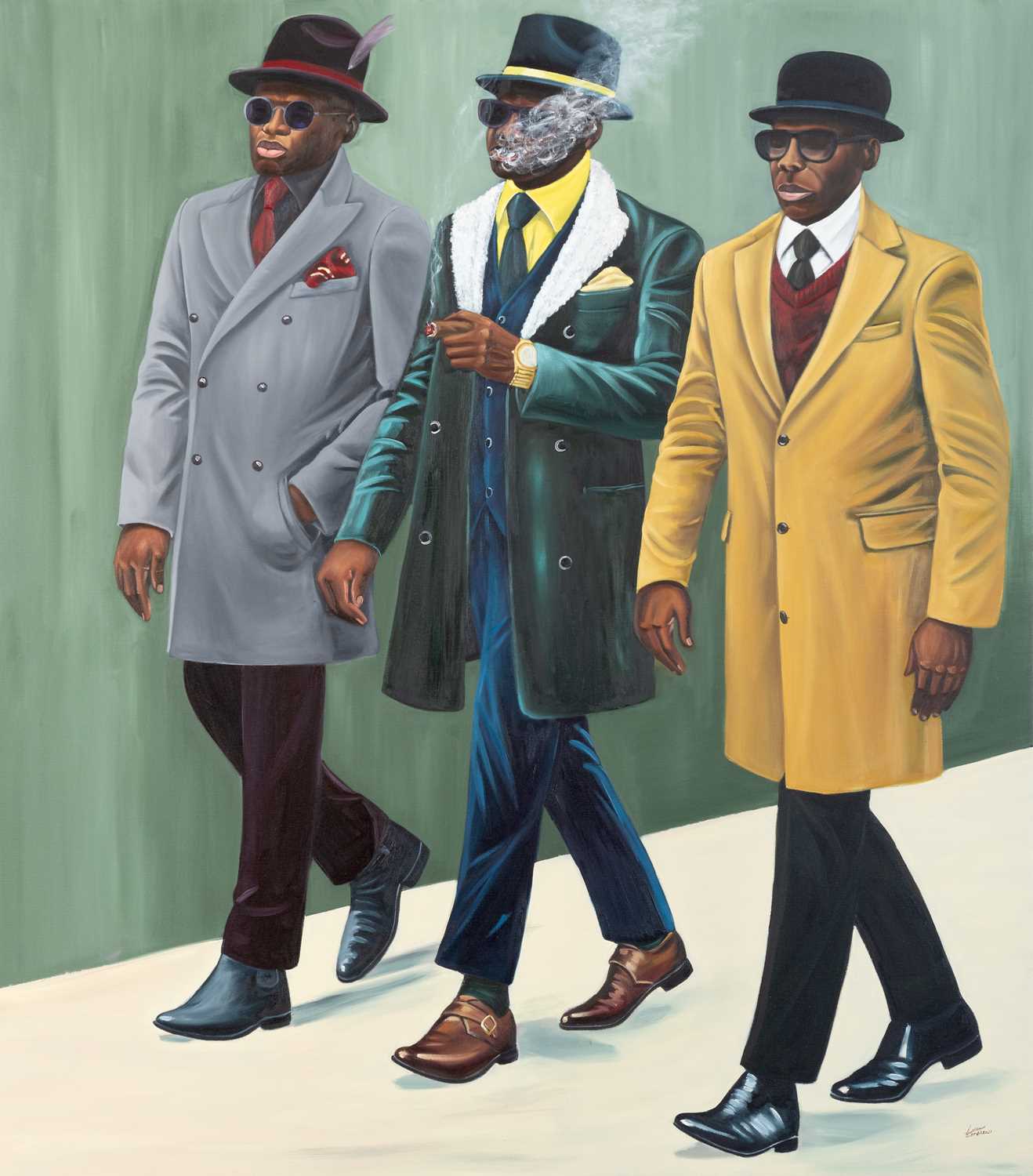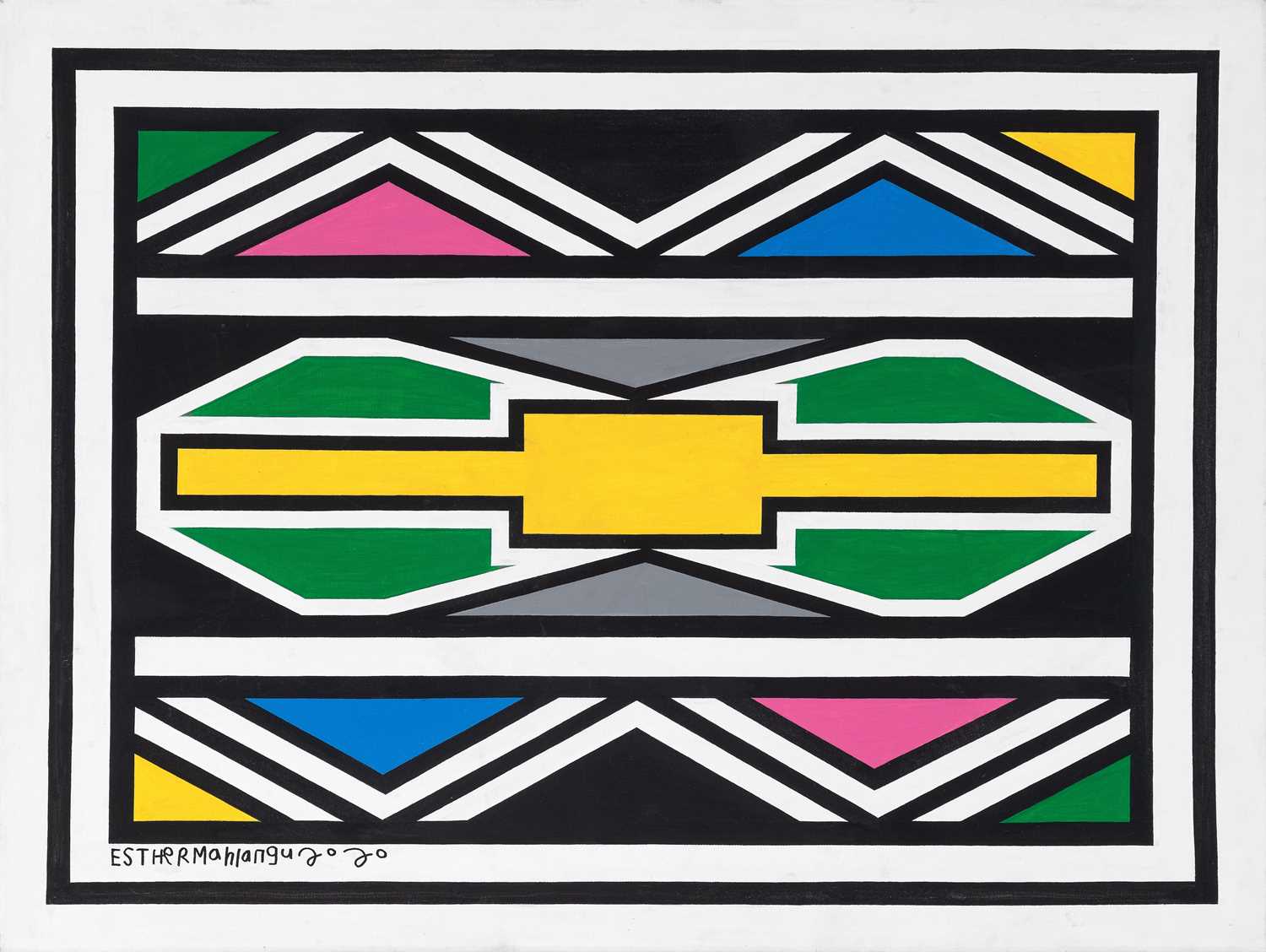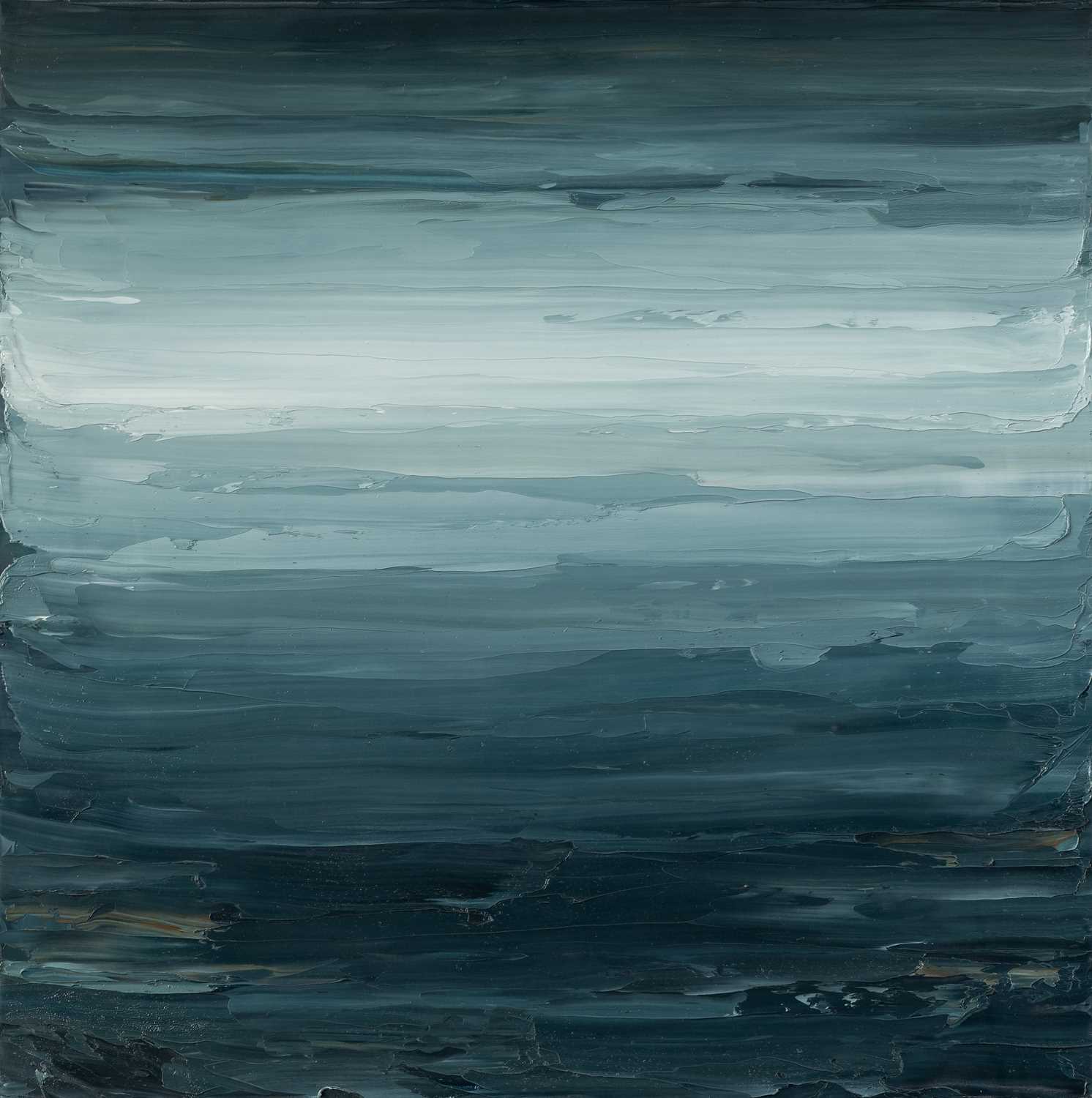6th Mar, 2024 18:00
20th Century & Contemporary Art
37
Marlene Dumas (South Africa 1953-)
Existential Doubt
oil and collage on canvas
Artwork date: 1972 -1975
Signature details: signed and inscribed 'Michaelis 1972 -1975' on the reverse
Literature: Bloemheuvel, M., Mot, J. and Nordgren, S. (1995). ‘Marlene Dumas Francis Bacon’. Malmö: Malmö Konsthall, illustrated in colour on p.99.
Sold for R4,003,125
Estimated at R1,200,000 - R1,800,000
oil and collage on canvas
Artwork date: 1972 -1975
Signature details: signed and inscribed 'Michaelis 1972 -1975' on the reverse
Literature: Bloemheuvel, M., Mot, J. and Nordgren, S. (1995). ‘Marlene Dumas Francis Bacon’. Malmö: Malmö Konsthall, illustrated in colour on p.99.
(1)
123 x 76 x 2.5 cm
Provenance:
Private collection, Cape Town.
ABOUT THE ARTWORK
Existential Doubt is a significant painting in Marlene Dumas’ early career establishing her not only as a fearless artist with the courage to explore challenging subject matter but as a painter of extraordinary power in her ability to conjure from the medium of oil paint on canvas not merely a physical likeness but to question what it is to be human.
While Dumas was a student at the Michaelis School of Fine Art in Cape Town, she produced a number of important works. One of them was a painting titled Dedicated to Other People’s Rainbows. This painting, which can be compared to Existential Doubt, is “a dark work in which faces and figures emerge through a haze. Hovering between abstraction and figuration, the painting charts her dual interests in the physical characteristics of the object and the properties of paint on the one hand, and the allusive qualities of the medium, on the other.”[1] It is obvious that Existential Doubt and Dedicated to Other People’s Rainbows originate from the same period in Dumas’ development as an artist.
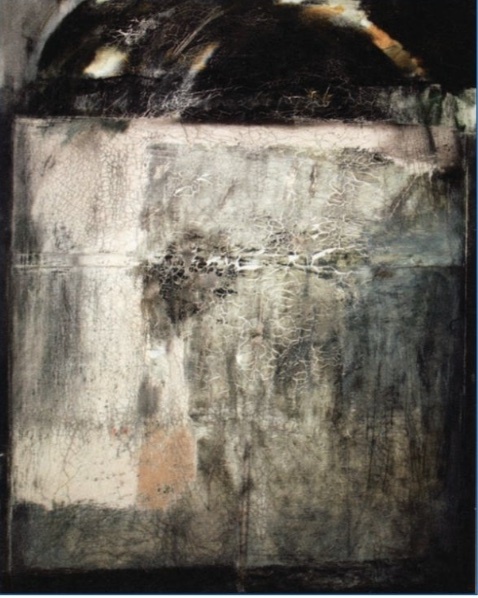
Marlene Dumas
Dedicated to Other People’s Rainbows
1973
Existential Doubt has been in a private collection and is therefore little known whilst Dedicated to Other People’s Rainbows, produced by the artist in the same year, was featured in the catalogue for Dumas’ solo exhibition at the Iziko South African National Gallery in Cape Town and at the Standard Bank Gallery in Johannesburg, curated by the artist in close collaboration with Emma Bedford, then Senior Curator and Head of Art Collections at Iziko South African National Gallery.
The title, Existential Doubt, was chosen by the artist in reflecting on her brother, Pieter Dumas. As she recently explained:
My brother Pieter introduced me to the philosophy of Kierkegaard and his description of faith as a leap into the dark. […] Belief as doubt, not security. Acting in spite of not knowing. And I was reading Sartre with his existentialism, and statements of existence preceding essence, and one is doomed to freedom, in those formative Michaelis years. How to paint a naked man was just as difficult and remains so, as how to paint a naked woman. And the canvas was a place to attack and struggle with the actual making of marks on a surface. The act of painting itself was never a comfortable site or gesture for me. At times it is clearer to see than at other times. Unlike extremists in politics and others who are hyper-really clear in intention. [… ] I’m always in doubt, […] vulnerability, nakedness and doubt are even less appreciated now than ever.[2]
In the very physicality of its making – the grappling with the materials of paint and canvas, the rubbing of tools and media against one another – Existential Doubt suggests the almost bodily wrestling of image and subject to wrest from the medium a deeper experience of life.
As Dumas explained in an email to the author, this painting is the forerunner of several key works which followed in the 1990s.[3] These include images confirming the context of the deliberate damaging of works where the canvas is also ‘manhandled’[4] such as Liberation 1945 (1990), Vandalised Pin-up (1996), Veiled, (1997), and Woman with the Stars (in her Eyes) (1998). When you look at Liberation, for example, the paint is very thin and wiped off rather than added to, as happens in the earlier 1970s works.[5] A comparable painting from the same period, Girl in Boxer Shorts (ca.1974) is “almost the female version of the Existential Doubt work” according to Dumas.[6]
The thick paint and the dense materiality of the surfaces in Existential Doubt demonstrate the artist’s innovation in exploring the range of possibilities offered by the medium and the importance of Existential Doubt in Marlene Dumas’ oeuvre.
Emma Bedford
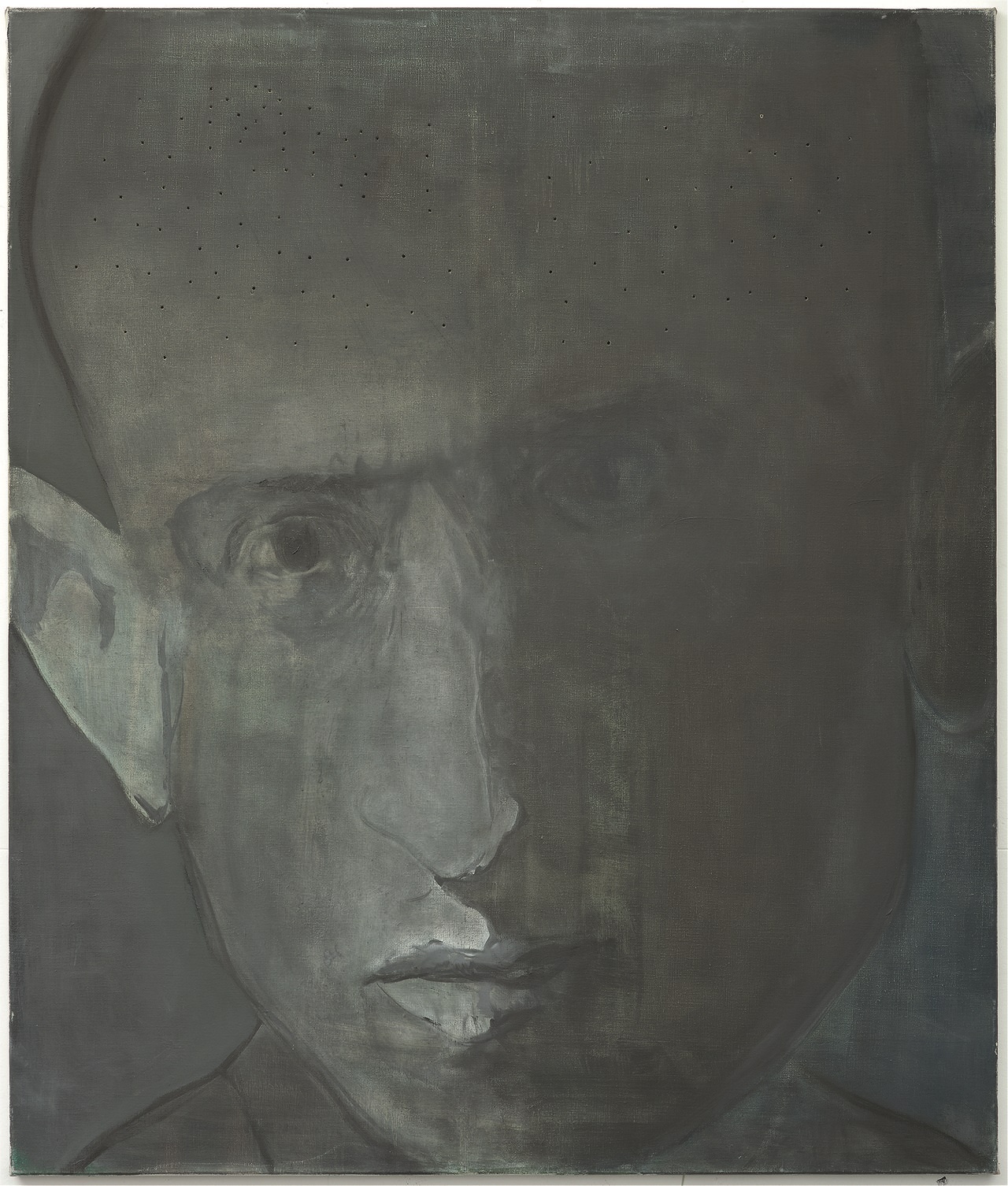
Marlene Dumas
Liberation 1945
1990
Jewish Museum Collection, Amsterdam
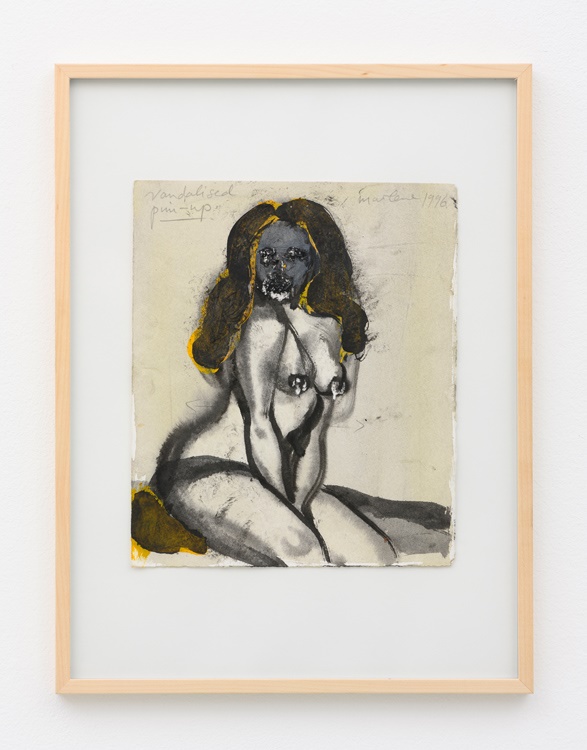
Marlene Dumas
Vandalised Pin-up
1996
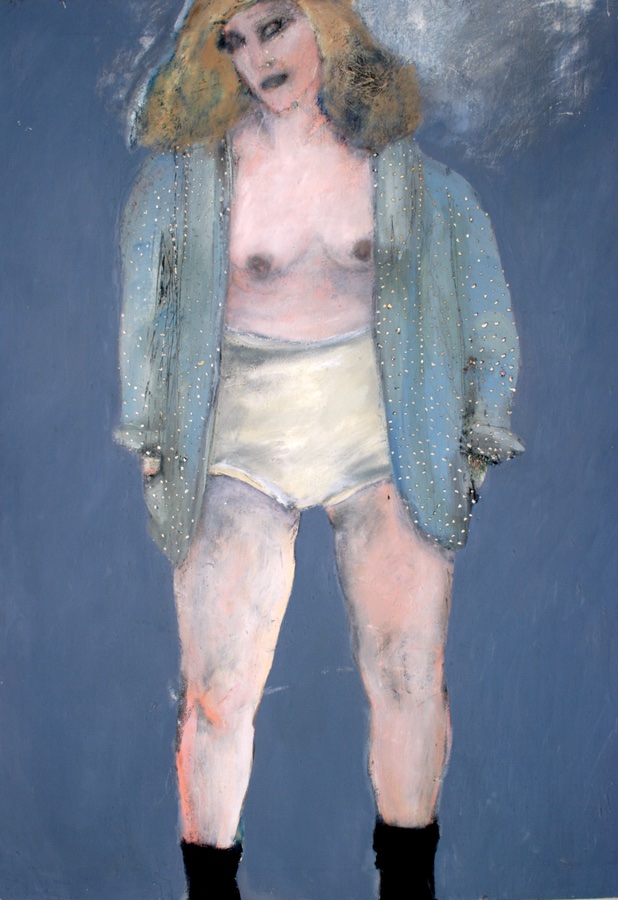
Marlene Dumas
Girl in Boxer Shorts
c.1974,
Private collection, image courtesy of Studio Dumas
[1] Bedford, E. ‘Questions of Intimacy and Relations’ in Dumas, M. & Bedford, E. Intimate Relations. Jacana Media, Johannesburg & Roma Publications, Amsterdam, 2007, p34.
[2]Email from Marlene Dumas to Emma Bedford, Jan 16, 2024, 12:43 PM
[3] Email from Marlene Dumas to the seller dated 27 December 2023 at 04:05
[4] Email from Marlene Dumas to Emma Bedford, Jan 16, 2024, 12:43 PM
[5] Email from Marlene Dumas to Emma Bedford, Jan 21, 2024, 10:43 PM
[6] Email from Marlene Dumas to Emma Bedford, Jan 21, 2024, 10:43 PM
COLLECTOR'S NOTE
- In 2005 Marlene Dumas held the distinction of achieving the highest price ever at auction for a female artist when her painting of 1987, entitled The Teacher (sub a), sold at Christie’s London for GBP1.8 million ($3.3 million) – more than R34 million.
- The current auction high was set when The Visitor (1995) sold in 2008 for GBP3,177,250 (over $6.3 million) – more than R60 million.
- Recent solo exhibitions, include open-end, at Palazzo Grassi in Venice (2022-2023), Marlene Dumas. ‘Le Spleen de Paris’ et ‘Conversations’, at Musée d’Orsay, Paris (2021-2022), Marlene Dumas: The Image as Burden, Tate Modern, London, United Kingdom (2015) and Intimate Relations at the Standard Bank Gallery, Johannesburg and Iziko South African National Gallery, Cape Town, South Africa (2007-2008).
- Dumas is currently included in Deep inside my hearta group exhibition at the National Gallery of Australia, Canberra, La Répétition / The Rehearsal at Centre Pompidou-Metz, Metz, France and Capturing the Moment: Painting after Photography at the Tate Modern, London, United Kingdom amongst other important group exhibitions.
- In 2024 Dumas will be included in Le monde comme il va, showcasing iconic works from the Pinault Collection at Bourse de Commerce, Paris and the opening exhibition of the Holocaust Museum, Amsterdam, Netherlands, amongst others.
- Marlene Dumas has been awarded Honorary Doctorates from the University of Antwerp (2015), University of Cape Town (2012), University of Stellenbosch (2011) and Rhodes University, Grahamstown (2010).
- Dumas has been the recipient of numerous prestigious awards, most recently the Hans Theo Richter-Preis für Zeichnung und Grafik 2017, Sächsischen Akademie der Künste, Dresden in 2017, the Johannes Vermeer Award 2012, Delft in 2012 and the Rolf Schock Prize in the Visual Arts, Stockholm in 2011.
COLLECTIONS:
The artist is represented in numerous local and international collections, notably, the Art Institute of Chicago; Boijmans van Beuningen, Rotterdam; Carnegie Museum of Art, Pittsburgh, Pennsylvania; Centraal Museum, Utrecht; Centre Pompidou, Paris; De Pont Stichting, Tilburg; Des Moines Art Center, Des Moines, Iowa; Dordrechts Museum, Dordrecht; ICA Boston; Kunsthalle Bielefeld, Bielefeld; Museum of Modern Art, New York; Nasher Museum of Art, Durham, North Carolina; National Portrait Gallery, London; Rijksmuseum, Amsterdam; Rubell Family Collection, Miami; Stedelijk Museum Schiedam, Schiedam; Tate Modern, London; The Broad, Santa Monica; The Long Museum, Shanghai; The Menil Collection, Houston and the National Museum of Art, Osaka.
You can place an absentee bid through our website - please sign in to your account on our website to proceed.
In the My Account tab you can also enter telephone bids, or email bids@aspireart.net to log telephone/absentee bids.
Join us on the day of the auction to follow and bid in real-time.
The auction will be live-streamed with an audio-visual feed.
Auction: 20th Century & Contemporary Art, 6th Mar, 2024
HIGHLIGHTS
IMPORTANT NOTICE:
Logistics
While we endeavour to assist our Clients as much as possible, we require artwork(s) to be delivered and/or collected from our premises by the Client. In instances where a Client is unable to deliver or collect artwork(s), Aspire staff is available to assist in this process by outsourcing the services to one of our preferred Service Providers. The cost for this will be for the Client’s account, with an additional Handling Fee of 15% charged on top of the Service Provider’s invoice.
Aspire Art provides inter-company transfer services for its Clients between Johannesburg and Cape Town branches. These are based on the size of the artwork(s), and charged as follows:
Small (≤60x90x10 cm): R480
Medium (≤90x120x15 cm): R960
Large (≤120x150x20 cm): R1,440
Over-size: Special quote
Should artwork(s) be collected or delivered to/from Clients by Aspire Art directly, the following charges will apply:
Collection/delivery ≤20km: R400
Collection/delivery 20km>R800≤50km
Collection/delivery >50km: Special quote
Packaging
A flat fee of R100 will be added to the invoice for packaging of unframed works on paper.
International Collectors Shipping Package
For collectors based outside South Africa who purchase regularly from Aspire Art’s auctions in South Africa, it does not make sense to ship artworks individually or per auction and pay shipping every time you buy another work. Consequently, we have developed a special collectors’ shipping package to assist in reducing shipping costs and the constant demands of logistics arrangements.
For buyers from outside South Africa, we will keep the artworks you have purchased in storage during the year and then ship all the works you have acquired during the year together, so the shipping costs are reduced. At the end of the annual period, we will source various quotes to get you the best price, and ship all your artworks to your desired address at once.
Aspire Art will arrange suitable storage during, and cost-effective shipping at the end, of the annual period.
Collections
Collections are by appointment, with 24-hours’ notice
Clients are requested to contact the relevant office and inform Aspire Art of which artwork(s) they would like to collect, and allow a 24-hour window for Aspire Art’s logistics department to retrieve the artwork(s) and prepare them for collection.
Handling Fee
Aspire Art charges a 15% Handling Fee on all Logistics, Framing, Restoration and Conservation arranged by Aspire.
